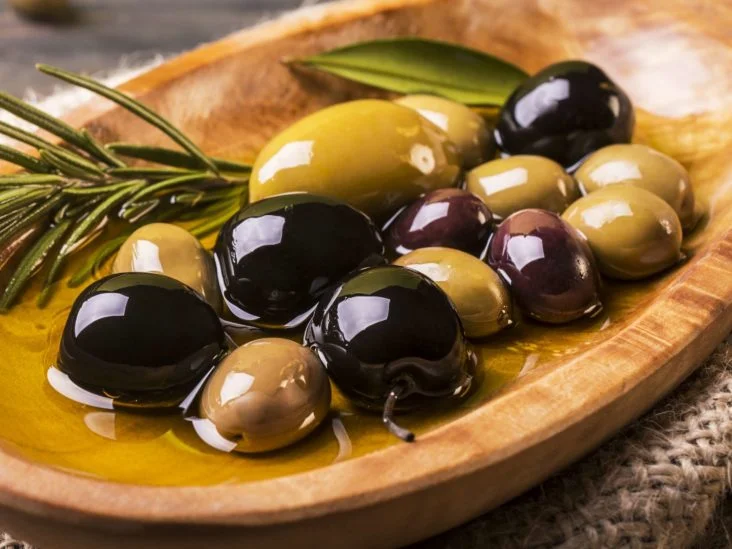
wellhealthorganic.com:11-health-benefits-and-side-effects-of-olives-benefits-of-olives
Olive is a tree. People utilize the oil extracted from the seeds and fruit extracted from water of the fruit, and the leaves to make medicine.
Olive oil is utilized to stop heart attacks and strokes (cardiovascular disease) Breast cancer, colorectal cancers, rheumatoid arthritis and migraine headaches.
Some people use olive oil as a treatment for constipation or high cholesterol, the high pressure of blood vessels, issues that are caused by diabetes, as well as ear infections that cause pain as well as arthritis and gallbladder problems. Olive oil can also be used to combat gastric inflammation, jaundice and meteorism (swelling of abdomen due to gas).
Some people also use olive oil to increase the amount of bacteria in the gut and as an “cleanser” or “purifier.”
Olive oil can be applied to the skin (used as a topically) to treat earwax, hearing ringing (tinnitus) as well as pain in the ears, lice, wounds, little burns stretch marks caused by pregnancy, and also to shield the skin from UV (UV) damage from sun exposure.
In foods it is commonly used as a cooking and salad oil.
Health benefits and side effects of olives or (wellhealthorganic.com:11-health-benefits-and-side-effects-of-olives-benefits-of-olives)
- Cancer of the breast. People who eat greater amounts of olive oil as part of their diets are thought to be at a lower risk of developing breast cancer.
- Heart diseases. The replacement of saturated fats in the diet with olive oil can lower the risk of heart disease and stroke, including reducing blood pressure and cholesterol. The addition of olive oil to your diet can help in preventing any heart attack that could lead to. A study suggests that a high consumption of olive oil (54 grams/day; about 4 tablespoons) can reduce the risk of having a heart attack first by 82%, compared to the intake of a lower level of seven grams or less per day. Incorporating 1 liter of olive oil per week of extra-virgin olive oil in a Mediterranean diet for 5 years also seems to reduce the risk of heart attacks and strokes in those who are older than 55 who have diabetes or a combination of heart disease risk factors (smoking or drinking, high blood pressure, elevated LDL (“bad”) cholesterol and lower HDL (“good”) cholesterol excessive weight, or the family medical history of heart problems). A Mediterranean diet includes a large amount of nuts, fruits as well as cereals, vegetables and fruits, moderate intake of poultry and fish and little intakes of dairy items, red meat processed meats and sweets.The FDA now allows labels on olive oil and on food that contains olive oil to say that a small amount, though not conclusive, evidence suggests that daily consumption of 23 grams (about two tablespoons) in olive oil instead of saturated fats may reduce the risk of heart disease.
- Colorectal cancer. Studies suggest that those who consume higher amounts of olive oil within their diet have an lower chance of developing colorectal cancer.
- Cholesterol levels are high. Using olive oil in the diet in lieu of saturated fat could lower cholesterol levels for those with high cholesterol. There is some evidence that different oils used in the diet such as sunflower and the rapeseed (canola) might decrease “bad” low-density lipoprotein (LDL) cholesterol and another type of cholesterol, Apolipoprotein B more effectively than olive oil.
- Hypertension. By adding large amounts of olive oil that is extra virgin to the diet and continuing with the usual treatments for high blood pressure could boost blood pressure for 6 months for those suffering from hypertension. In certain instances, those who have moderate to mild high blood pressure can actually lower their dose of blood pressure medications or even quit taking the medication altogether. However, you should not alter your medications under the direction of your healthcare professional. Also, taking olive leaf extract may lower blood pressure among patients with high blood pressure.
- Earwax. Applying olive oil on the skin doesn’t appear to soften the earwax.
- Ear problems. Applying olive oil on the skin does not seem to alleviate pain for children suffering from ear infections.
Other side effects of Olive oil are:
The olive oil you use is most likely to be safe when consumed with care either by mouth or applied directly onto the body. Olive oil is a good choice safely as 14% of total daily calories. This is about 2 teaspoons (28 grams) each day. A maximum of 1 liter per week of extra-virgin olive oils has been safely used as part of a Mediterranean-style diet up to 5.8 years.
Olive oil consumed by mouth is well tolerated. If it is applied on the face, delay allergic responses as well as contact dermatitis have been described.
There’s not enough evidence available about the security of olive leaf however, to date, olive leaf and fruit pulp have not been linked to significant side effects in clinical studies.
The pollen produced by olive trees can trigger a respiratory allergic response in certain people.

